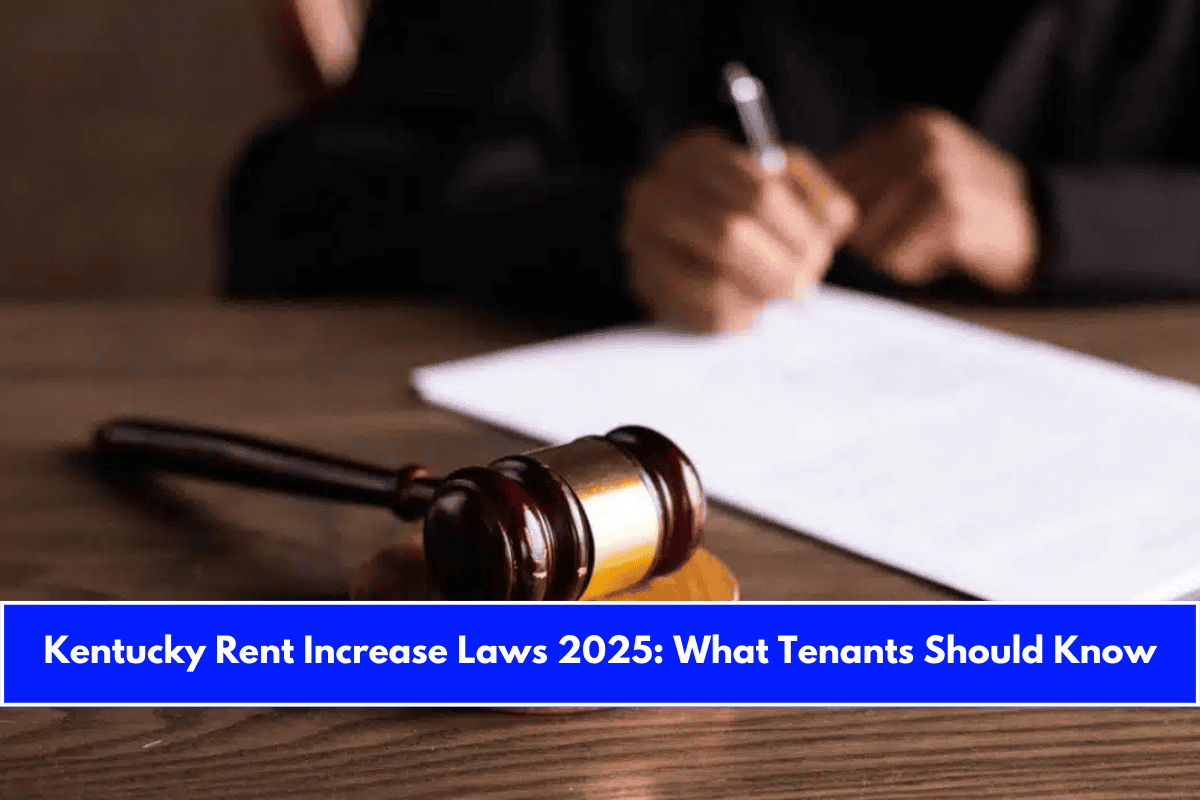As Kentucky’s rental market evolves, tenants need to understand their rights and what to expect regarding rent increases in 2025. Unlike some states, Kentucky does not have rent control, but there are important rules about notice periods, lease agreements, and protections against unfair practices.
No Rent Control or Cap on Increases
Kentucky does not impose rent control at the state or local level. This means there is no legal limit or cap on how much a landlord can raise the rent, whether it’s 5%, 10%, 20%, or more. Landlords are free to set new rental rates based on market conditions when a lease term ends.
Notice Requirements for Rent Increases
- 30-Day Written Notice: Landlords must provide tenants with at least 30 days’ written notice before any rent increase takes effect. This applies to both month-to-month and year-long (fixed-term) lease agreements.
- Fixed-Term Leases: Rent cannot be raised during the lease term unless the lease specifically allows it. Any increase typically takes effect at renewal, with proper notice given before the current lease ends.
- Month-to-Month Leases: A 30-day written notice is required before increasing rent.
When Rent Increases Are Not Allowed
- During Active Lease: Landlords cannot increase rent during a fixed-term lease unless the lease agreement explicitly permits it.
- Retaliation or Discrimination: Rent increases cannot be used as retaliation against tenants for exercising legal rights (e.g., filing complaints) or be discriminatory based on protected characteristics such as race, religion, or disability.
Legal Protections and Dispute Resolution
- Lease Terms Govern: Tenants should carefully review their lease agreements, as these documents may outline specific procedures or restrictions for rent increases.
- Challenging Illegal Increases: If a tenant believes a rent increase is retaliatory, discriminatory, or violates the lease, they can seek mediation or legal action. Kentucky offers mediation services and, if necessary, tenants can take disputes to court.
- Security Deposits: Kentucky law limits security deposits to one month’s rent and requires landlords to return them within 30 days of move-out, with deductions only for unpaid rent, damages, or other specified reasons.
Summary Table
| Rule or Protection | Details in Kentucky (2025) |
|---|---|
| Rent control or cap | None; no maximum increase |
| Notice required for increase | 30 days’ written notice |
| During fixed-term lease | No increase unless lease allows |
| During month-to-month lease | 30 days’ notice before increase |
| Retaliatory/discriminatory increase | Prohibited |
| Security deposit limit | One month’s rent |
Key Takeaways for Tenants
- There are no limits on how much rent can be increased, but landlords must provide at least 30 days’ written notice.
- Rent increases cannot occur during a lease term unless the lease allows it.
- Increases cannot be retaliatory or discriminatory.
- Review your lease closely and seek mediation or legal help if you believe an increase is unfair.
Understanding these rules will help Kentucky tenants navigate rent changes and protect their housing rights in 2025.
Sources:
- https://www.hemlane.com/resources/kentucky-rent-control-laws/
- https://mylolowcountry.com/usa-laws/kentucky-rent-increase-laws-2025-what-tenants-should-know/
- https://www.steadily.com/blog/rent-increase-laws-regulations-kentucky
- https://ark7.com/blog/learn/cities/complete-house-renting-guide-for-kentucky/











Leave a Reply